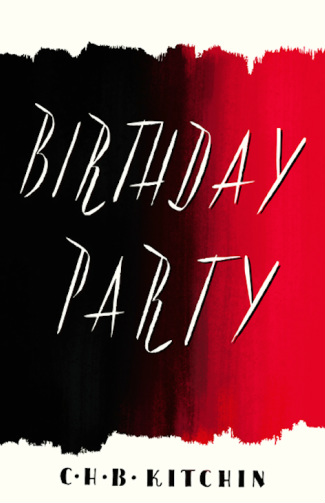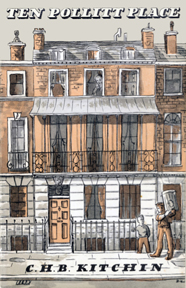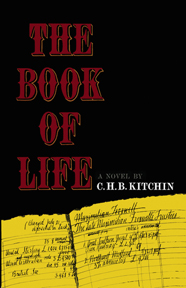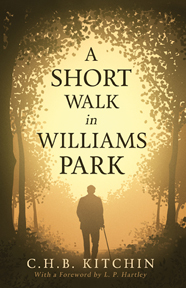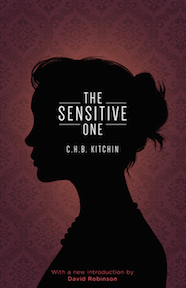|
BOOK DETAILS
Trade paper ISBN-13: 978-1941147191 List Price: $18.99 U.S. Pages: 248 Published: 2014 |
Birthday Party (1938)
C.H.B. Kitchin With a new introduction by Adrian Wright Book Description
Twelve years ago Claude Carlice was found dead of a gunshot wound. The verdict was suicide brought on by a fit of insanity, but his sister Isabel has never believed it. Now the day approaches when Claude’s son Ronnie will come of age and take possession of Carlice Abbey. Preparations for the birthday party are underway, but it will not be a festive occasion: Ronnie, who has imbibed Marxist ideas at Oxford, intends to throw his aunt and stepmother out of the house and sign the entire estate over to the Communist Party for use as a propaganda centre. As tensions rise and the big day arrives, a strange series of events will unfold, revealing the scandalous truth behind Claude’s death and resulting in an unexpected fate for Carlice Abbey and its occupants. C.H.B. Kitchin (1895-1967) was both a best-selling crime writer and a critically acclaimed author of literary fiction. In Birthday Party (1938), he combined the two, resulting in a novel that is both a fascinating examination of a changing English society on the eve of the Second World War and a suspenseful psychological mystery full of surprising twists and turns. This first-ever republication of the novel includes a reproduction of the original jacket art and a new introduction by Adrian Wright. |
reviews
“[A] first-class psychological study . . . the character drawing, although a little cruel, is admirably done and the writing is consistently excellent.” – Times Literary Supplement
“It is original, it is strangely exciting, and the logic of its plan is repeated in the behaviour of its characters.” – L. P. Hartley
“It is really a detective story in which the clues, instead of being actual, are psychological. The reader is made to feel all the tension and curiosity which a good crime novel inspires, and he is not disappointed.” – The Tablet
“It is original, it is strangely exciting, and the logic of its plan is repeated in the behaviour of its characters.” – L. P. Hartley
“It is really a detective story in which the clues, instead of being actual, are psychological. The reader is made to feel all the tension and curiosity which a good crime novel inspires, and he is not disappointed.” – The Tablet
ALSO AVAILABLE THROUGH ONLINE RETAILERS
MORE TITLES BY THIS AUTHOR
AUTHOR BIOGRAPHY
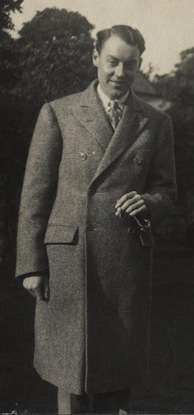
C.H.B. (Clifford Henry Benn) Kitchin was born in Yorkshire in 1895. He attended Exeter College, Oxford, and published his first book, a collection of poems, in 1919. His first novel, Streamers Waving, appeared in 1925, and he scored his first success with the mystery novel Death of My Aunt (1929), which has been frequently reprinted and translated into a number of foreign languages.
Kitchin was a man of many interests and talents, being called to the bar in 1924 and later amassing a small fortune in the stock market. He was also, at various times, a farmer and a schoolmaster, and his many talents included playing the piano, chess, and bridge. He was also an avid collector of antiques and objets d'art.
Kitchin was a lifelong friend of L. P. Hartley, with whose works Kitchin’s were often compared, and was also a friend and mentor to Francis King, who later acted as Kitchin’s literary executor. In his introduction to the Valancourt edition of Kitchin’s The Book of Life, King recalls meeting Kitchin after the two wrote fan letters to one another in 1958 that crossed in the mail: King had written in praise of Ten Pollitt Place, while Kitchin’s letter had expressed admiration for the younger novelist’s The Man on the Rock (1957). King wrote, ‘[B]y the time that I met him, his fate was that of many elderly, once famous writers in England. Instead of lead reviews, he now got two or three paragraphs at the bottom of a page. Increasingly critics would apply the dread word “veteran” to him, much to his annoyance.’ This frustration is echoed in his novel Ten Pollitt Place, where Kitchin portrays himself in the character of the aging novelist Justin Bray.
Kitchin, who was gay, lived with his partner Clive Preen, an accountant, from 1930 until Preen’s death in 1944. C.H.B. Kitchin died in 1967.
Kitchin was a man of many interests and talents, being called to the bar in 1924 and later amassing a small fortune in the stock market. He was also, at various times, a farmer and a schoolmaster, and his many talents included playing the piano, chess, and bridge. He was also an avid collector of antiques and objets d'art.
Kitchin was a lifelong friend of L. P. Hartley, with whose works Kitchin’s were often compared, and was also a friend and mentor to Francis King, who later acted as Kitchin’s literary executor. In his introduction to the Valancourt edition of Kitchin’s The Book of Life, King recalls meeting Kitchin after the two wrote fan letters to one another in 1958 that crossed in the mail: King had written in praise of Ten Pollitt Place, while Kitchin’s letter had expressed admiration for the younger novelist’s The Man on the Rock (1957). King wrote, ‘[B]y the time that I met him, his fate was that of many elderly, once famous writers in England. Instead of lead reviews, he now got two or three paragraphs at the bottom of a page. Increasingly critics would apply the dread word “veteran” to him, much to his annoyance.’ This frustration is echoed in his novel Ten Pollitt Place, where Kitchin portrays himself in the character of the aging novelist Justin Bray.
Kitchin, who was gay, lived with his partner Clive Preen, an accountant, from 1930 until Preen’s death in 1944. C.H.B. Kitchin died in 1967.

